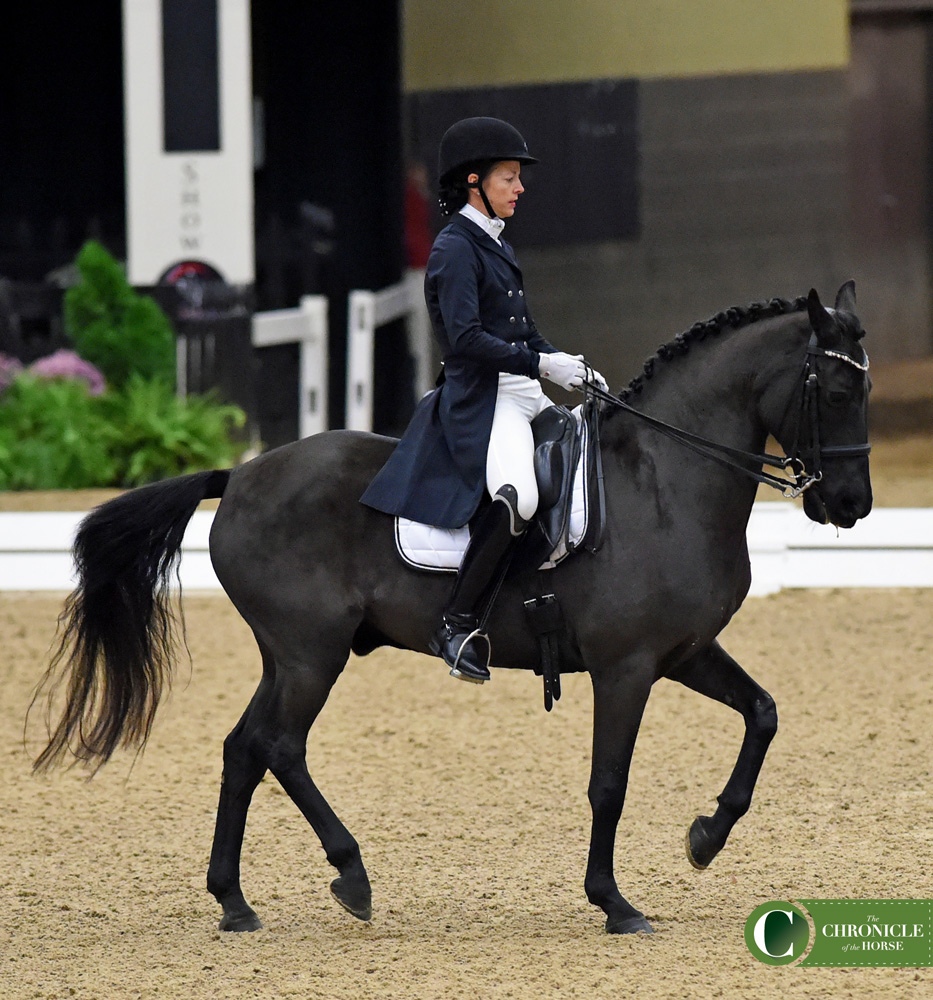If money were no object, many of my amateur students would have multiple horses, all in full training, so they could come to the barn and enjoy their horses and riding without worrying about the trials and tribulations of farm ownership and of taking care of their own animals. Things like well pumps (which exclusively break at 2 a.m.), fence boards (which exclusively break above 90° or below 20°) and our favorite Flesh Wound of Unknown Origin are all hindrances to any rider’s plan, and most of those come off the table when your horse is in a training program.
But I’ve got a few students who would keep their horses at home or in a boarding stable anyway because they truly enjoy all the good parts about having their horses close at hand. And here in the real world, training is expensive, and that’s not an option for everyone. Over the years I’ve had, and continue to have, many students who not only keep their horses at home or in a boarding program, but also bring them up the levels to compete with success at FEI. Their stories are all different, but they have some commonalities.

Jenn Drescher and Blue And White Raven were the 2017 USDF Adult Amateur Grand Prix Freestyle reserve champions, and they did it on their own from a boarding barn with the help of regular lessons. Kimberly Loushin Photo
1. They get regular help. On average, regular means at least twice a month, if not more. I have students who live far away who will come down for a weekend once a month. The ones who live more locally average about one trailer-in lesson a week. (This is true of good professional riders too—regular eyes on the ground are the only way to get anywhere, because as we all know, what we feel and what the guy on the ground sees are not necessarily the same thing.)
2. They get the occasional inning from a fresh arm. Again, this is true not just for amateurs, because all of us sometimes need a little relief pitching. Whether it’s sitting on their horse for a few minutes at the beginning of a lesson or keeping the horse in training for a short period of time, all of my students who successfully keep their horses elsewhere make sure I get in the tack from time to time, just to check in, and sometimes to push through a tricky developmental spot. In a perfect world, these training plateaus would only occur when the owners are on vacation for two weeks, so I’d be getting their horses in short-term training, but alas, the world ain’t fair!
3. They have self-discipline beyond the norm. I am hugely in awe of my students who work 9-5 (or longer!) and then come home at the end of the day to ride, but it’s another level when that student also fed and did stalls at 6 a.m., and then has to drag their own arena, mow their own fields, check their fence lines for fallen boards and THEN tack up and go. And especially since we live in a part of the world where the weather isn’t always divine, that often means feeling the motivation to ride when the wind is howling/the rain is pouring/the temperatures are at an extreme without the benefit of a covered or indoor arena.
ADVERTISEMENT
I also think there’s a social element that my boarders love, where they get to see other people riding, and coming to the barn is a fun event independent of the lesson. Staying motivated to ride when it’s just you and your horse alone in your world takes another level of discipline, and it’s one all my successful-from-home students have in spades.
4. A supportive spouse, if the horses really are at home. I don’t mean financially supportive; I mean game for an agricultural dream, which is a big deal for some spouses who loved city living. Having the horses at home means that, at some point, my student is going to have to call her partner because she’s stuck at work longer than expected, and needs them to bring the horse in. They have to get at least a little bit horsey in a hurry, and they also have to get comfortable with the idea of planning their vacations around times when a farm sitter can be found.
5. A special horse. Not every horse can thrive in a backyard setting. Ella would NEVER have been able to figure out life in a paddock with a run-in shed. Not every horse can develop well only being ridden after work hours. Some horses need more management, and some horses need the benefits that a really professional environment can provide. That’s not good or bad or otherwise; it just is. And for my students who are learning how to ride the upper-level work at the same time that their horse is in particular, that’s a very special horse who can tolerate the inevitable mistakes and dips in the learning curve. To do so from home, without the benefit of daily professional supervision, requires a special creature, indeed.
This may sound like a daunting list, and it is. But Heather and Kristin and Nancy and Malena and Krista and Jenn have all done it, and continue to do it. They’re my damn heroes!
Lauren Sprieser is a USDF gold, silver & bronze Medalist making horses and riders to FEI from her farm in Marshall, Virginia. She’s currently developing The Elvis Syndicate’s Guernsey Elvis, her and Beverley Thomas’s Ellington, and her own Gretzky RV and Ojalá with hopes of one day representing the United States in team competition. Read more about her at SprieserSporthorse.com, or follow Lauren Sprieser on Facebook.














